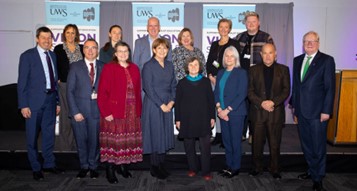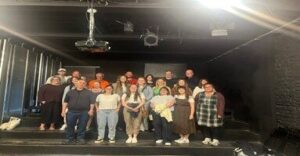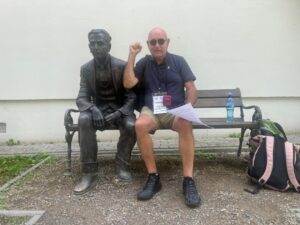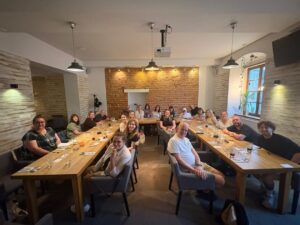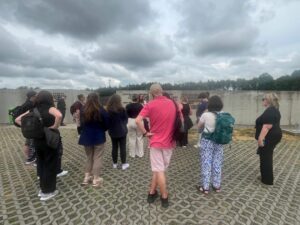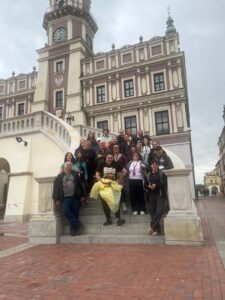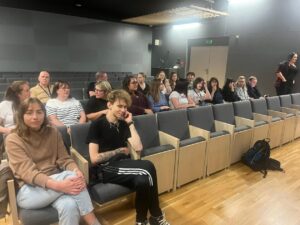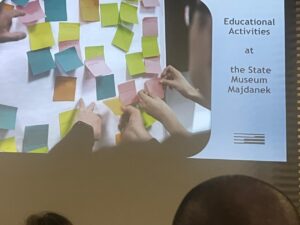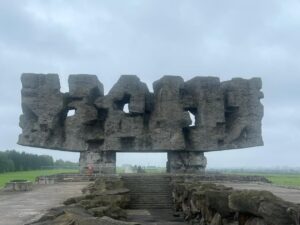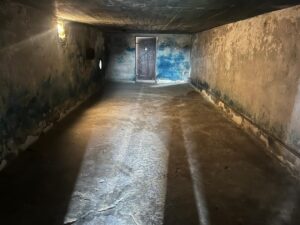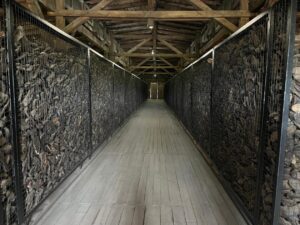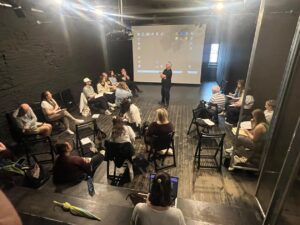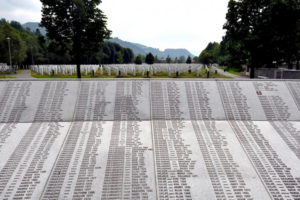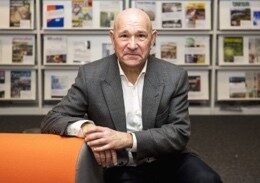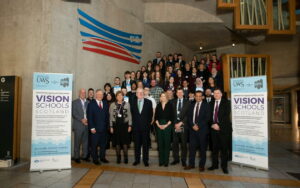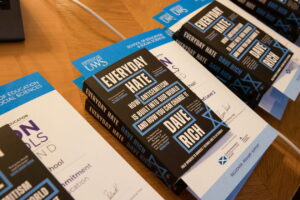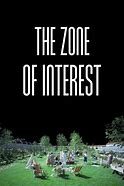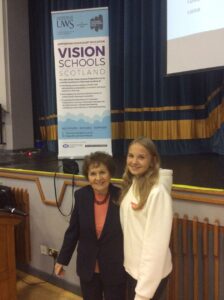Holocaust Memorial Day (HMD) 2025 marks the 80th anniversary of the liberation of Auschwitz-Birkenau, the largest Nazi concentration camp complex, and the 30th anniversary of the genocide in Bosnia.
Emeritus Professor Henry Maitles and Dr Andrew Killen, UWS and Vision Schools, have written a blog to commemorate Holocaust Memorial Day 2025.
Why remember the Holocaust?
On 27th January in 1945, the Red Army arrived at Auschwitz. Its horrors shocked even those battle-hardened troops, many of them veterans of Stalingrad.
Auschwitz was the darkest moment of the 20th century, perhaps of world history. It was the epitome of the Nazi Holocaust, which involved the state organised murder of 6 million Jews, over 1 million Roma, and mass atrocities towards a further 7 million civilians.
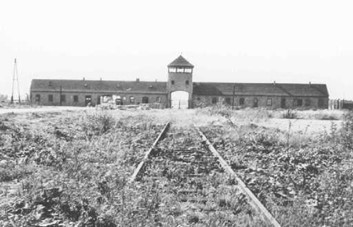
The Holocaust evokes for most people the ultimate in inhumanity, hence the outrage and revulsion towards Holocaust distorters, deniers and modern-day fascists. They insult the memory of survivors and other eyewitnesses who are the spokespersons of those millions without voice, who collectively tell us a story of systematic and ongoing brutality. The Holocaust must be remembered.
Firstly, the Holocaust demonstrates how genocide was committed as a “normal” routine. Holocaust scholar Hannah Arendt referred to it as the ‘banality of evil’, planned and carried out by ordinary people. Secondly, the Holocaust demonstrates how a technologically advanced country used its scientific and industrial innovations for the mass extermination of people. Historian and author Zygmunt Baumann argues that the decisive factor that made the mass murders possible was not only Nazi racial policy per se but this allied to modernity itself.
And, these two points were cemented by the SS, the army, the industrialists, and the civil servants planning the Holocaust at Wannsee in January 1942; the bureaucratised and efficient train system to transport Jews to the death camps; huge research and development into efficient gas for the ovens; the county’s best engineering firms competing for the contract to build the most efficient crematoria; ‘healthy’ Jews not being exterminated immediately but worked to death as slave labour. This is one of the most frightening bits of the event: the planning and execution of the Holocaust resembled normal industrial activity. As one camp commander of Auschwitz commented it was ‘murder by assembly line’.
Although the Jews and Roma were the main targets of the genocide, it must be recognised not only as a part of Jewish history but as a genocidal crime against all humanity. The key ideological driver was antisemitic racism. Keeping the memory of the Holocaust alive will not by itself stop the rise of fascism in the 21st century. However, it does make modern-day Nazis’ job harder. They know that the revulsion of most people to the events in Europe in the 1940s makes it more difficult for them to win support.
Theodor Adorno, the renowned German academic argued that “the main aim of education is to ensure that Auschwitz cannot happen again”. Remembering the Holocaust and commemorating Holocaust Memorial Day, perhaps particularly in schools, can contribute to marginalising them.
Vision Schools Scotland
Unlike in England, where since 1991 the Holocaust has been a compulsory part of the history curriculum for Key Stage 3 in English secondary schools for pupils aged between 11 and 14 years, the Holocaust is not mandatory in the Scottish 3 to 18 curriculum, Curriculum for Excellence.
Holocaust Education relies on Head Teachers or Directors of Education who are committed to TLH in their schools, and to teachers of history and other subject areas who choose to teach it. That is why at UWS we launched the Vision Schools Scotland network.
Established in 2017, it’s a partnership between the School of Education and Social Sciences and the Holocaust Educational Trust. Funded by the Scottish Government, the British Government and some charities, its aims are to promote excellence in Holocaust teaching by:
- Identifying and rewarding schools that embed Holocaust education in their schools
- Creating opportunities for teachers to share good practice of school based Holocaust education
- Promoting and presenting in person and online Career Long Professional Learning in Holocaust education to teachers, helping them develop confidence and proficiency in Holocaust teaching
The Vision Schools Scotland network continues to expand and support some 70 secondary schools in all parts of Scotland, recently expanding into Aberdeen and Aberdeenshire.
